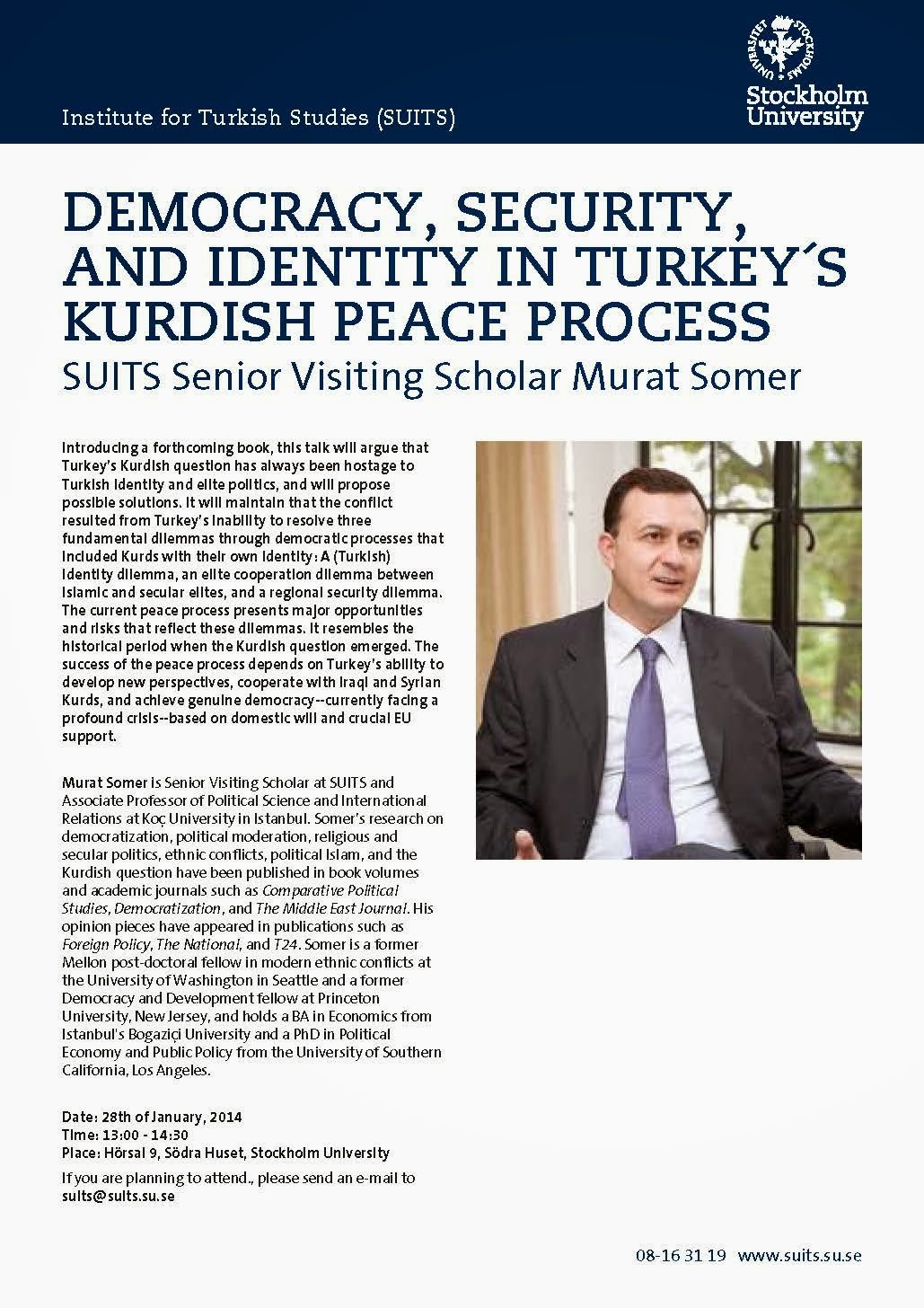I syfte att ge stöd åt svenska företags bedömningar om den turkiska marknaden och genom att belysa både utmaningar och de stora möjligheter som Turkiet erbjuder, anordnar Institutet för Turkietstudier vid Stockholms universitet (SUITS) och Business Sweden ett gemensamt halvdagsseminarium i samarbete med Utrikesdepartementet.
Turkiets ekonomiska tillväxt och utveckling det senaste decenniet har rönt stor uppmärksamhet. Turkiet förhandlar om medlemskap i EU sedan 2005 och ingår i en tullunion med EU sedan 1996. Landet har vuxit till en ekonomisk motor i regionen och blivit alltmer intressant som investeringsmål och marknad för svenska företag. 2013 tecknade Sverige och Turkiet ett strategiskt partnerskapsavtal.
På senare tid har dock Turkiets sårbarhet blottats – både politiskt och ekonomiskt – och landet kritiserats för korruption och minskad pressfrihet. Turkiets vision om att vara den tionde största ekonomin i världen år 2023 fordrar omfattande strukturreformer.
Mycket har hänt både i Turkiet och dess närområde under de senaste åren. Det finns anledning att diskutera bland annat justerade handelspolitiska strategier och förväntningar, politisk riskbedömning, korruption samt stabiliteten i Turkiets grannskap.
Datum: Måndag 1 september
Tid: Kl 13.00-17.30 (registeringen startar kl 12.30)
Plats: Regeringskansliet (Näringsdepartementet), Mäster Samuelsgatan 70, Stockholm, möteslokal Aulan
Deltagaravgift: 950 SEK
Språk: Engelska, frågor kan ställas på svenska
Tid: Kl 13.00-17.30 (registeringen startar kl 12.30)
Plats: Regeringskansliet (Näringsdepartementet), Mäster Samuelsgatan 70, Stockholm, möteslokal Aulan
Deltagaravgift: 950 SEK
Språk: Engelska, frågor kan ställas på svenska
Välkommen på en kvalificerad genomlysning av Turkiets aktuella politik och vad den betyder för bedömningarna om marknadsutveckling och affärsmöjligheter.
Business Sweden i samarbete med SUITS och Utrikesdepartementet.







